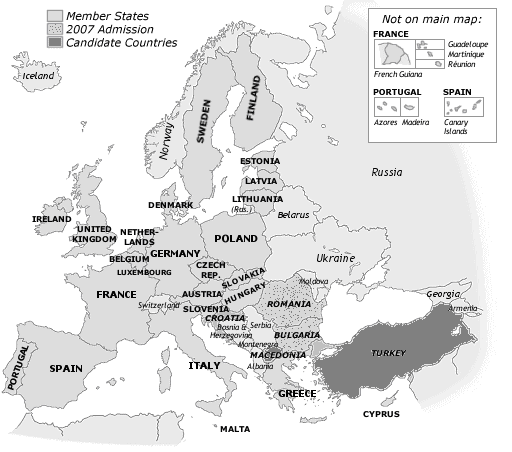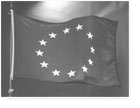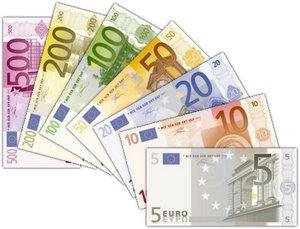
- •Англійська мова Навчальний посібник для слухачів і cтудентів заочної форми навчання
- •Передмова
- •Послідовність роботи над навчальним матеріалом
- •Фонетико – орфографічний розділ
- •Від букви до звука reading vowels
- •Reading vowels combinations in a stressed position
- •Reading consonants and their combinations
- •Ex. 1. Read and translate the dialogue: What's your name?
- •Vocabulary notes:
- •Memorize the following useful phrases Greetings
- •Ex. 6. Role-play the following situations:
- •Taras: What specialists are trained at the institutes?
- •Taras: Isn’t it difficult to work and study at the same time?
- •Vocabulary notes:
- •Ex. 11. Translate the following word-families into Ukrainian:
- •Ex. 14. Complete the table according to the pattern:
- •Ex. 15. Encircle the suffixes and translate the following words, paying attention to the roots:
- •Ex. 18 . Complete the sentences:
- •Ex. 20. Translate into English:
- •Ex. 21. Object to the following statements using the phrases given below: Phrases of disagreement:
- •The Kyiv National University of Internal Affairs
- •Grammar exercises
- •A letter from Chris
- •Remember the following conversational formulas
- •Dialogue 1
- •Dialogue 2
- •Dialogue 3
- •Dialogue 4
- •Dialogue 5
- •Ex.2. Make up dialogues using the situations:
- •Our information Roads and highways
- •Ex.3. Translate into English and compose the dialogues of your own:
- •Запитайте водія, чим ви можете йому допомогти.
- •Ex.4. Read and translate the text using the vocabulary notes:
- •Vocabulary notes:
- •A town
- •Ex.6. Match the nouns in columns a and b to make compound nouns:
- •The best thing to do would be to park your car on the outskirts of the town
- •Grammar Exercises
- •Vocabulary notes:
- •Ukraine Brief Outline
- •The Constitution of Ukraine
- •The legislative power
- •The executive power
- •The judicial power
- •Our information
- •Remember!
- •Exercises
- •Official name - Ukraine
- •Grammar exercises
- •Vocabulary notes:
- •Militia of UkrAine
- •Internal Affairs Agencies»
- •Exercises
- •Grammar exercises
- •Vocabulary notes:
- •The European Union
- •It is interesting to know:
- •Exercises
- •Freedom, security and justice for all
- •Україна та євро інтеграція
- •Grammar exercises
- •Vocabulary notes:
- •Information for you
- •The legal System in England and Wales
- •Numbers 1-5 and 7 are superior courts;
- •Word-family
- •Exercises
- •Grammar Exercises
- •Vocabulary notes:
- •Police force in the United Kingdom
- •Police ranks and grades in England and Wales
- •Police badges of ranks and grades
- •Exercises
- •1. Home Secretary
- •2. Metropolis
- •3. Rank
- •Force Organization in England and Wales
- •Chief Constable
- •Grammar exercises
- •Vocabulary notes:
- •Classification of Crimes
- •Word- families
- •Remember
- •Remember
- •Злочинець
- •Definitions of criminals
- •Exercises
- •1. What are the most serious crimes?
- •2. What are indictable and non-indictable offences?
- •A new way to fight shoplifting
- •Violence in the restaurant
- •Could you describe the case and its contents?
- •Grammar exercises
- •Vocabulary notes:
- •Police description of a person
- •Voice and language
- •General appearance Human body Figure and Build
- •Shoulders
- •Thickness of hair
- •Hair-cut and hair-do
- •Shape and thickness of eyebrows
- •Narrow turned-up Ears a) overall size
- •Mouth and lips
- •Arms and hands
- •Special features of arms / hands
- •Legs and feet
- •Special features of language, Speech and voice
- •Distinctive marks
- •Exercises
- •An accident
- •Are you badly hurt? Do you need a doctor?
- •A brawl
- •Vocabulary notes:
- •Unit 10
- •Vocabulary notes:
- •All human rights for all
- •Human rights violations
- •Exercises
- •Word focus
- •Порушення прав людини в Україні
- •Grammar exercises
- •Реферат та анотація
- •Складання рефератів
- •Перекладацьке реферування
- •Move on organised crime
- •Anti-drug patrols with americans
- •Fingerprinting at birth
- •Convention on transnational crime
- •Probing russian organised crime
- •Corruption conference
- •Interpol
- •Vocabulary notes:
- •Europol: The European Police Office
- •Vocabulary notes:
- •The International Police Association (ipa)
- •The noun (Іменник) Множина іменників
- •Вимова суфіксів
- •Особливі форми множини
- •Однакові форми однини та множини
- •Особливі випадки узгодження іменників
- •Присвійна форма іменників
- •Іменники в множині
- •The article (Артикль) Вживання означеного артикля:
- •Вживання неозначеного артикля:
- •Відсутність артикля
- •The pronouns (Займенники) Розряди займенників
- •Неозначений займенник «one» у сполученні з дієсловом
- •Неозначені займенники «some, any» в реченні
- •Похідні займенники
- •The verb (Дієслово) Класифікація дієслів за їх призначенням
- •Особові і безособові форми дієслова та функції, що вони виконують
- •Наказовий спосіб (Imperative Mood)
- •Дійсний спосіб (Indicative Mood)
- •The Past Indefinite Tense (минулий неозначений час) (The Simple Past Tense (простий минулий час))
- •The Future Indefinite Теnse ( майбутній неозначений час) (The Simple Future Tense (простий майбутній час)
- •Заміна майбутнього часу теперішнім у підрядних речениях умови і часу
- •Утворення часової групи Perfect
- •Утворення часової групи Continuous
- •The Future Indefinite in-the-Past Tense (Майбутній неозначений в минулому)
- •Зведена таблиця утворення видо-часових форм дієслова в активному стані (Active Voice)
- •Основні форми дієслова Найбільш вживані нестандартні (неправильні) дієслова
- •Sequence of Tenses
- •Узгодження форм часу
- •Reported speech (Hепряма мовa)
- •Passive Voice ( Пасивний стан )
- •Відмінювання дієслова «to ask»
- •Зведена таблиця видо-часових форм дієслова в пасивному стані
- •Conditional/Subjunctive/Suppositional Mood (Умовний спосіб)
- •Infinitive
- •Функції інфінітива в реченні
- •Конструкції з інфінітивoм
- •Participle ( Дієприкметник )
- •1. Означення
- •2. Обставини
- •Конструкції з дієприкметником
- •Gerund (Герундій) Вживання герундія та способи його перекладу
- •Adjective (Прикметник) Ступені порівняння прикметників
- •Порівняльні конструкції
- •The adverb (Прислівник ) Ступені порівняння прислівників
- •The preposition (Прийменник)
- •Порівняння прийменників і прислівників, які співпадають за формою
- •The conjunction (Сполучник) Значення сполучників та їх місце в реченні
- •The numeral (Числівник) Кількісні числівники від і до 100
- •Чотири прості арифметичні дії (Four Simple Rules of Arithmetic)
- •Порядкові числівники
- •Дробові числівники (Fractional Numerals)
- •Позначення процентів
- •Грошові одиниці в Англії та в сша
- •Syntax (Синтаксис)
- •Imperative (Спонукальні)
- •Interrogative (Питальні)
- •Члени речення (Parts of the Sentence)
- •Порядок слів у простому розповідному реченні
- •Порушення порядку слів
- •It is (was) ... Who (that) ...
- •Типи питальних речень Структура загального запитання (General Question)
- •Структура спеціального запитання (Special Question)
- •Види підрядних речень
- •Англо-український словник
- •Англо-український тлумачний словник юридичних термінів (американський варіант)
- •Crіminal
- •Lineup identification – встановлення особи шляхом упізнання.
- •Illegal search
- •Rioter – особа, яка вчинила суспільний безлад.
- •Geographical Names
- •Методичні вказівки щодо виконання контрольних робіт з англійської мови
- •Виконання і оформлення контрольних робіт
- •1‚ 2‚ 3, Виконують варіант № 1;
- •Виправлення помилок
- •Контрольна робота для слухачів 1 курсу (5 р.Н.)
- •Контрольна робота для слухачів 2 курсу (5 р.Н.)
- •Контрольна робота для слухачів 2 курсу (4 р.Н.)
- •Контрольна робота для студентів 2 курсу (5 р.Н.)
- •Список використаної літератури
- •Англійська мова
- •Для нотаток
The European Union
The European Union (EU) is an intergovernmental union of 27 democratic member states - Belgium, France, Germany, Italy, Luxembourg, the Netherlands, Denmark, Ireland, the United Kingdom, Greece, Portugal, Spain, Austria, Finland, Sweden, Cyprus, Czech Republic, Estonia, Hungary, Latvia, Lithuania, Malta, Poland, Slovakia, Slovenia, Bulgaria, Romania - the area of 3,892,685 km² and over 450 million people.
The European Union is the world's largest confederation of independent states, established under that name in 1992 by the Treaty on European Union (the Maastricht Treaty). The capital of the EU is Brussels. There are 20 official languages.
The European Union is a family of democratic European countries, committed to working together for peace and prosperity. It is an organization for international cooperation, and it does not intend to replace existing states Any European country can join the EU if it has a stable democracy that guarantees the rule of law, human rights and the protection of minorities. It must also have a functioning market economy and a civil service capable of applying EU laws.
The member states have set up common institutions to which they delegate some of their sovereignty so that decisions on specific matters of joint interest can be made democratically at European level.


The most important EU institutions include the Council of the European Union, the European Commission, the European Court of Justice, the European Parliament, and
The most important EU institutions include the Council of the European Union, the European Commission, the European Court of Justice, the European Parliament, and the European Central Bank.
The European Union's activities cover most areas of public policy, from economic policy to foreign affairs, defence, agriculture and trade. Their main aspects are:
-
free trade of goods and services among member states
-
freedom for citizens of its member states to live and work anywhere within the EU
-
a single currency, the euro (excluding the UK and Denmark)
-
a common external customs tariff
-
funding for the development of disadvantaged regions
-
cooperation in criminal matters, including sharing of intelligence (through EUROPOL and the Schengen Information System)
-
a common security policy (60,000-member European Rapid Reaction Force for peacekeeping purposes, an EU military staff)
The Constitution for the EU now has an uncertain future. It was ratified by 13 member states. However 54.7% of French voters and 61.6% of voters in the Netherlands rejected the constitution.
It is interesting to know:
History of Country's Membership
1952 - Belgium, France, Germany, Italy, Luxembourg, the Netherlands 1973 - Denmark, Ireland, the United Kingdom 1981 - Greece 1986 - Portugal, Spain 1995 - Austria, Finland, Sweden 2004 - Cyprus, Czech Republic, Estonia, Hungary, Latvia, Lithuania, Malta, Poland, Slovakia, Slovenia
2007 – Bulgaria, Romania
Croatia and Turkey are the official candidate countries to join the European Union.
The EU symbols

The European flag - the 12 stars in a circle symbolize the ideals of perfection, completeness and unity.
The European anthem - the melody comes from the Ninth Symphony by Beethoven.
Europe Day, 9 May - is celebrated each year as the EU’s birthday (1950)
“United in diversity” - is the motto of the EU.
Euro banknotes
The euro (€), is probably the EU’s most tangible achievement. It is the single currency, shared by 13 countries. This number will rise as the new member countries adopt the euro, once their economies are ready.
A

EU countries using the euro:
Belgium, Germany, Greece, Spain, France,
Ireland, Italy, Luxembourg, the Netherlands, Austria, Portugal and Finland, Slovakia. EU countries not using the euro: Czech Republic, Denmark, Estonia, Cyprus, Latvia, Lithuania, Hungary, Malta, Poland, Slovenia, Sweden and the United Kingdom.
